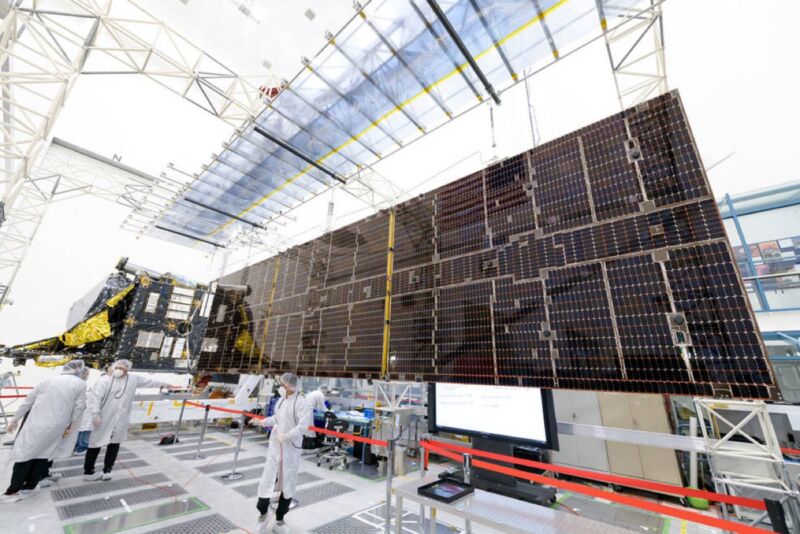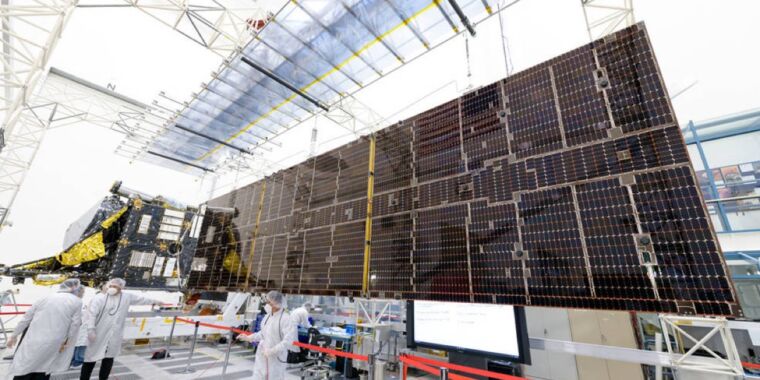
NASA/JPL-Caltech
On Friday, NASA issued a press release to announce that its planned mission to the asteroid Psyche, slated to launch this fall, has been indefinitely suspended. While the spacecraft is ready and delivered to the Kennedy Space Center, there has been a delay in validating the software that will perform the mission while operating in remote regions of the solar system.
That delay has pushed mission readiness past the point where the launch window closes due to changes in the alignment of the bodies that Psyche will pass along on its journey to the asteroid of the same name. NASA says a mission review will evaluate all options, ranging from cancellation to simply postponing the mission until the next window opens. Problemically, Psyche’s launch included a ride for a separate asteroid mission called Janus that has its own launch windows, so the review will have to cover NASA’s entire Discovery Mission program more broadly.
Psyche out
The asteroid Psyche is an unusual body in the solar system. It is the former core of an object large enough to form a core of metallic elements; collisions have since removed the outer layers of this body, leaving behind something almost entirely metal. Accordingly, a visit to Psyche provides an opportunity to improve our understanding of the formation of everything from modern-day asteroids to the bodies that coalesced to form the planets.
And NASA planned to do just that through a mission that shared the asteroid’s name. However, the timing of the launch is crucial. Gravity influences from the planets will affect how quickly Psyche can move into place, and the mission organizers wanted to ensure the probe arrives at Psyche at a point in the asteroid’s orbit where sunlight is favorable for imaging.
As our recent visit to JPL showed, the hardware was ready on time. But there have been problems validating the mission’s software, which combines guidance, navigation and hardware control. The validation process requires a platform that mimics the hardware on the probe, in some cases through duplicates of the actual onboard hardware. That testing platform was only recently completed, and mission planners concluded that there isn’t enough time to fully test the software before closing the launch window.
Psyche is particularly sensitive to its control software because it moves through the solar system, powered by a weak but efficient ion drive. This requires it to start operating under its own control 70 days after launch, unlike missions that can get rocket-propelled motion from low Earth orbit, followed by months to years of cruising before some software features become critical.
Without the launch of Psyche, the Janus mission will of course be delayed as well. It’s not clear at this point if that mission’s future launch windows match reasonable windows for Psyche’s launch.
To figure out what to do next, NASA will form an outside review committee to evaluate what went wrong and what the options are. There are a number of future launch windows available, and simply delaying the mission is the most likely choice at this point. But the folks on NASA’s press call seemed remarkably hesitant to take all options off the table, including canceling the mission entirely.
Anyway, since the review panel isn’t staffed yet, it’ll be a while before we know what’s coming next.

